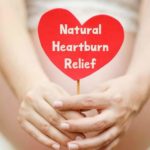Heartburn and Reflux, a Naturopathic Perspective by Kaila Sellars, ND
Do you experience burning, aching discomfort in the middle of your chest or often have an acid taste in your throat or mouth? Do you regret eating spicy foods, tomatoes, coffee or chocolate? If so, then you may have a common problem called heartburn, or gastroesophageal reflux. Reflux happens when the lower esophageal sphincter (LES) does not close properly or completely after swallowing, allowing acid from the stomach to reflux into the esophagus where it doesn’t belong. This causes discomfort and irritation to the esophagus and the symptoms of heartburn.
There are several reasons why heartburn may occur, including the counterintuitive reason of LOW stomach acid. Low stomach acid tends to occur with age, and also with stress to the digestive tract, especially with consumption of processed foods, foods that upset your stomach, and if you have food intolerances.
The tone or tightness of the lower esophageal sphincter is triggered by the acid in your stomach. Normal stomach pH is between 1 and 4. If the pH rises, or becomes less acidic, then this sphincter does not have the stimulation it needs to function properly.
Using antacids, or acid blocking medication, decreases the amount of stomach acid, which is helpful to reduce irritation to the esophagus. However, now you understand why this could lead to more reflux!
Long term use of antacids is associated with health problems such as low B12, osteoporosis, and, more seriously, GI infections, such as SIBO or C. Diff. They may also affect your cardiovascular system by interfering with Nitrous oxide production.
It is important to address the underlying cause of any condition, and so it is the case with reflux. Other causes of heartburn can be eating too quickly, stress, excess abdominal weight, maldigestion or other digestive issues. There is also evidence that up to 40% of reflux could be caused by candida (yeast, that also causes thrush) that is present in the esophagus! This is more likely if you have taken antibiotics multiple times, eat lots of sugar, or have struggled with other yeast issues. The esophageal yeast is accentuated by the antacids, as well, and is very difficult to diagnose.
 What can you do to resolve reflux? First, and foremost, nutrition is the place to start. Adding more fiber found in vegetables and whole grains, and nutrient packed foods, like fruits and veggies, encourages healthy digestion. Second, “meal hygiene” is important and starts with chewing. Each bite of food should be chewed thoroughly, to a nearly liquid consistency, before swallowing. Eating more slowly also helps. It takes about 20 minutes for your brain to catch up to your stomach, so eating slowly, and chewing, well helps to avoid overeating and aggravating the stomach. Try to drink water between meals, and less during the meal, to avoid diluting stomach acid while eating. Digestive bitters, made from bitter tasting plants, help to stimulate the stomach and pancreas and tonify digestion.
What can you do to resolve reflux? First, and foremost, nutrition is the place to start. Adding more fiber found in vegetables and whole grains, and nutrient packed foods, like fruits and veggies, encourages healthy digestion. Second, “meal hygiene” is important and starts with chewing. Each bite of food should be chewed thoroughly, to a nearly liquid consistency, before swallowing. Eating more slowly also helps. It takes about 20 minutes for your brain to catch up to your stomach, so eating slowly, and chewing, well helps to avoid overeating and aggravating the stomach. Try to drink water between meals, and less during the meal, to avoid diluting stomach acid while eating. Digestive bitters, made from bitter tasting plants, help to stimulate the stomach and pancreas and tonify digestion.
Heartburn may be common, but that doesn’t mean healthy or optimal. It doesn’t have to cause lifelong discomfort and pain – it can be treated by improving the overall function of your gastrointestinal tract. And your whole body will benefit.
Say goodbye to heartburn, Billings!


Clinic